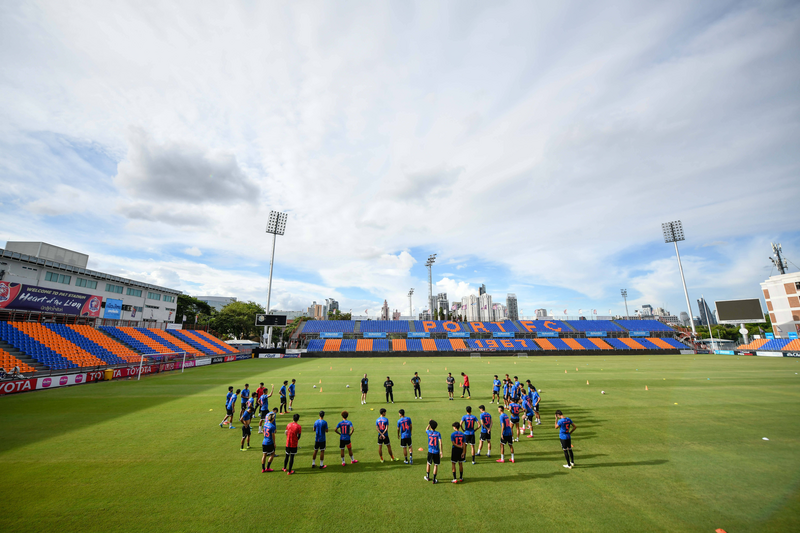FIFA launched USD 1.5 billion relief plan in July 2020 to provide reprieve and security to world football amid pandemic
Global distribution of FIFA COVID-19 Relief Plan support sees over 200 FIFA member associations and all six confederations avail of funding
Report finds FIFA funding used to successful secure football’s future worldwide
In July 2020, FIFA launched an unprecedented FIFA COVID-19 Relief Plan to provide security and support to all 211 FIFA member associations (MAs) as they faced extensive disruption due to the COVID-19 pandemic. In total, FIFA made USD 1.5 billion available and, over the past two years, over 200 FIFA MAs have utilised this funding to protect football and footballers in their country and to secure a safe future for the sport.
These funds have been distributed across the world, as each MA faces unique challenges during the pandemic that require tailored solutions. The FIFA COVID-19 Relief Plan has allowed MAs to tackle these challenges head-on. Two years on from when the World Health Organization (WHO) declared COVID-19 a global pandemic, FIFA has published a report to highlight the resolve and initiative shown by the football world in the face of this unparalleled challenge. “There can be no doubt that the COVID-19 pandemic is the biggest challenge that world football has ever faced,” said FIFA President Gianni Infantino. “That is why I am so proud of the response by FIFA, the confederations and all our member associations in acting quickly, decisively and unanimously to develop a detailed support plan to help the entire football family.
There can be no doubt that the COVID-19 pandemic is the biggest challenge that world football has ever faced
“The FIFA COVID-19 Relief Plan will allow football to emerge in an even stronger position than before COVID-19, and this report bears testimony to the efforts across the globe during the past two years. The relief plan also shows FIFA’s commitment to football and solidarity with the football family. In times of crisis, our family stands united.” The case studies presented in the report are not all-inclusive, but rather provide a snapshot of the endeavour and enterprise from MAs in the past two years. This includes: Andorra - The USD 500,000 women’s football grant made available through the COVID-19 Relief Plan has been covering women’s teams’ travel expenses as they make around 80 trips over the border to Spain per season. Antigua & Barbuda - When Antigua and Barbuda suffered a spike in COVID-19 cases, the national team were unable to play their FIFA World Cup 2022™ qualifiers at home, but the FIFA COVID-19 Relief Plan helped the Antigua and Barbuda Football Association (ABFA) to organise a “home” match in Curaçao. Argentina - The Argentina Football Association used the USD 1 million solidarity grant to provide COVID-19 testing for players and staff.
Armenia – The funding allowed for the organisation the #OurGame tournament: a women’s mini-tournament between Armenia, Jordan, Lebanon and Lithuania and the first-ever international competition to take place in the South Caucasian republic.
Bhutan - The Bhutan Football Federation (BFF) agreed to send 20 staff members to participate in the fight against the pandemic and volunteer in their local community. During this period, their salaries were guaranteed by the BFF thanks to FIFA funding.
Brazil – The Brazilian football association (CBF) deployed the women’s football grant to ensure the safety of women’s domestic competitions through the purchase of COVID-19 tests for players and staff. Cameroon - The Cameroonian Football Association (FECAFOOT) used its women’s football grant to support the restart of the 12-team women’s national league. Gibraltar – In one of the world’s smallest territories, COVID-19 Relief Plan funding allowed all forms of the game to return in 2021. Kyrgyz Republic - Football was halted in the Kyrgyz Republic during the height of the pandemic, but the MA used USD 750,000 of the COVID-19 solidarity fund to restart competitions.
Lebanon – Using the women’s funding grants available, Lebanon was able to increase the amount of women’s competitions and female players despite the COVID-19 pandemic. Mexico - The Mexican Football Federation has channelled the funding into running the Liga MX Femenil and supporting the women’s national teams, including through the implementation of safety protocols and COVID-19 tests.
Peru – The Peruvian Football Association used women’s football funding to launch the first season of Liga Femenina in 2021. Sierra Leone - Sierra Leone Football Association (SLFA) responded to the public health crisis by making its technical centre available as a quarantine and testing centre for patients suffering from COVID-19.
Solomon Islands - The Solomon Islands played in the FIFA Futsal World Cup 2021™ in Lithuania, but their participation had been in danger earlier in the year as the team’s regular (and only) training hall was converted into a clinic. Using USD 1 million of the FIFA COVID-19 Relief Plan, the Solomon Islands Football Association managed to organise two training camps for the national futsal team outside of the Solomon Islands.
Seychelles – The Seychelles Football Federation (SFF) used FIFA COVID-19 Relief Plan funding to make the SFF’s technical centre available to the government for COVID-19 testing and quarantine facilities. Thailand - The FIFA COVID-19 Relief Plan funded the testing of all players and match officials prior to the restart of competitive action in Thailand, as well as supporting the implementation of the video assistant referee (VAR) system in the Thai domestic league.
Togo – Funding allowed for the testing of all players in the top two domestic leagues in Togo and the restart of competition. Venezuela - The FVF channelled the USD 500,000 grant allocated to women’s football into financing the 2021 Transition Tournament and unveiled a new women’s football development plan, with the slogan Nace un sueño (“A dream is born”).






